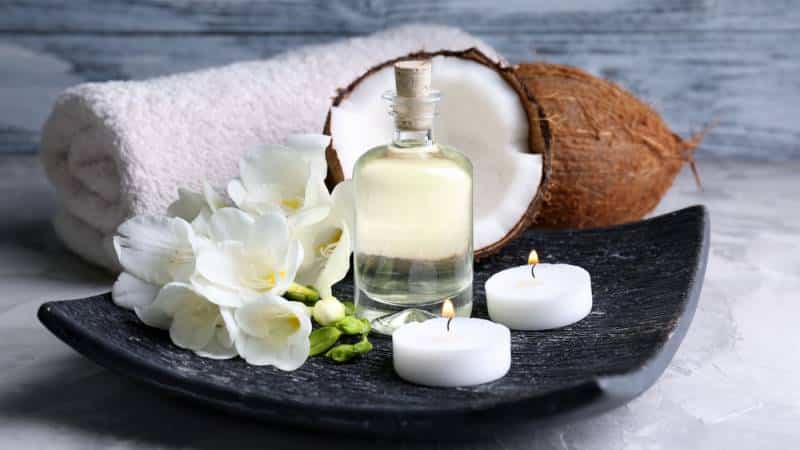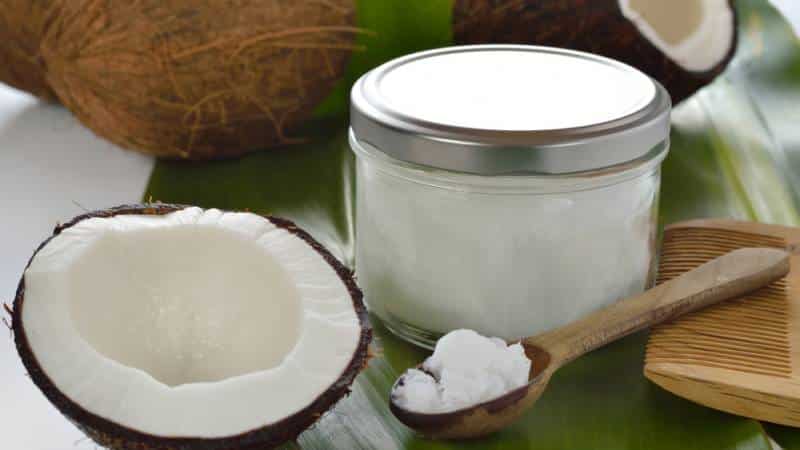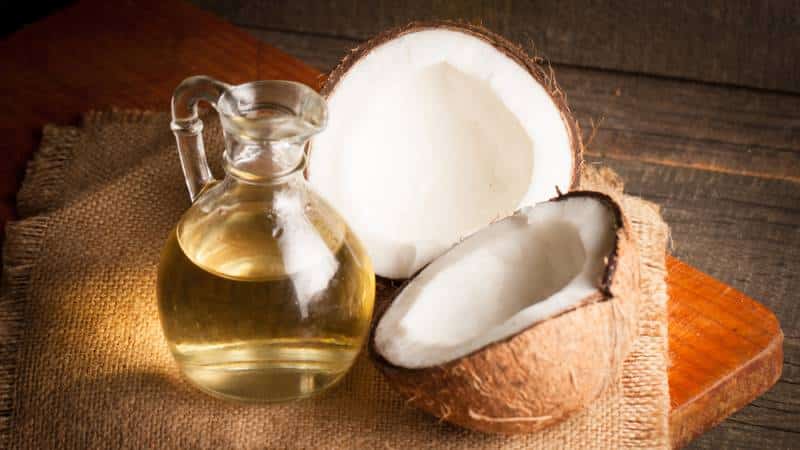If you have low porosity hair, you know that using the right products is essential to keeping your hair healthy and looking its best. Coconut oil is a great product to use if you have low porosity hair, but it can be a little confusing to figure out how to use it correctly. This article will explain everything you need to know about using coconut oil for low-porosity hair.
Read on to learn more about what low porosity hair is and how coconut oil can help keep it looking great!
What Is Low Porosity Hair?
Low porosity hair is a type of hair that is resistant to penetration by water or moisture in general. This means that it can be difficult for products to work into the hair follicle and nourish it from within.
For people with low porosity hair, getting moisture into the hair can be a real challenge. Because of this, it is important to use products that are specifically designed for low porosity hair.

Is Coconut Oil Good for Low Porosity Hair?
According to the experts, coconut oil is one of the best products you can use to care for low porosity hair. It contains fatty acids that help attract and lock in moisture, and it also has anti-fungal properties that help prevent breakage and damage. This tropical oil is able to penetrate into the hair follicle and provide deep nourishment.
Using coconut oil regularly on your low porosity hair can help keep your locks looking healthy and shiny. It can also help reduce breakage and prevent frizz, making it a great choice for people with this hair type.
If you have low porosity hair, using coconut oil can be a great way to keep your locks looking their best. Just make sure to choose a high-quality product from a reputable brand, and be sure to apply it carefully so that you get the best results.
Does Coconut Oil Dry Out Low Porosity Hair?
Some people may be concerned that using coconut oil on low porosity hair could dry it out. However, this is generally not the case. Coconut oil is able to penetrate deep into the hair follicle and provide necessary moisture, even for those with low porosity.
However, if you experience any drying or other issues when using coconut oil on your low porosity hair, it is important to discontinue use and consult with your hair care professional. This will help you to find a product that works best for your particular hair type and ensure that you can achieve healthy, beautiful locks.

Are There Any Other Risk Factors to Consider When Using Coconut Oil for Low Porosity Hair?
There are some other risk factors to consider when using coconut oil or any type of hair care product on low porosity hair. These can include using products that contain toxic ingredients, such as sulfates, parabens, or chemical preservatives, which can damage the hair and lead to breakage, split ends, and other issues.
Additionally, it is important to avoid using high-heat styling tools on low porosity hair, as this can further damage the hair and make it more difficult for coconut oil or other products to penetrate into the hair follicle. Instead, opt for air drying or gentle heat styling methods like a hooded dryer or thermal conditioning cap.
Allergic reactions to coconut oil can also be a risk factor when using it for low porosity hair. Some people may find that their scalp or skin becomes irritated, red, or itchy after applying coconut oil. If this is the case for you, consult with your doctor about different treatment options that may be more suitable for your hair and skin type.
With some careful consideration and a good hair care routine, coconut oil can be an excellent choice for people with low porosity hair.

How to Use Coconut Oil for Low Porosity Hair – 4 Tips You Need to Know
Using coconut oil for low porosity hair can be a great way to nourish and moisturize your strands. However, there are some things you should keep in mind when you’re using it so that you get the best results possible. Here are a few tips on how to use coconut oil for low porosity hair:
1. Only Use Unrefined Coconut Oil
When using coconut oil for low porosity hair, it’s important to use unrefined coconut oil. Refined coconut oil has been heated to high temperatures during the processing stage, which can significantly reduce its moisturizing properties. Unrefined coconut oil, on the other hand, is cold-pressed and retains its full ability to penetrate the hair and add moisture.
2. Start With A Protein-Based Treatment
If your hair has been damaged by heat styling or chemical treatments, you may need to do a protein-based treatment before using coconut oil for low porosity hair. Protein helps strengthen your strands and make them more receptive to moisture and prevents them from getting damaged.
3. Use Coconut Oil As A Sealant
Coconut oil can be used as a sealant to lock in the moisture from your other hair products and protect your hair from the elements. This helps prevent frizz and keeps your strands looking healthy and shiny all day long. Just make sure not to use too much or your hair will look weighed down and greasy.
4. Do Your Research
If you have low porosity hair and want to give coconut oil a try, be prepared for some trial and error before you find what works best for your strands. A little bit of research goes a long way in helping you find the right moisturizing product for you. And with a little bit of dedication and patience, you’ll be able to reap the benefits of coconut oil for low porosity hair in no time!
After reading these tips, you are now well-equipped to start using coconut oil for low porosity hair. Here is a step-by-step guide to help you get started:
- Start by washing and conditioning your hair with a gentle shampoo and conditioner that are free of sulfates and other harsh chemicals.
- Apply an ample amount of unrefined, cold-pressed coconut oil to your damp strands, focusing on the ends where they are most prone to damage.
- Let the coconut oil sit for about 30 minutes or so, then rinse it out with lukewarm water and a mild sulfate-free shampoo.
- Proceed to style your hair, as usual, using heat styling tools sparingly and avoiding harsh chemical treatments whenever possible. And remember to use a quality heat-protectant product to keep your hair healthy and strong.
With some patience and dedication, you’ll be able to reap the benefits of coconut oil for low porosity hair in no time!

Alternative to Coconut Oil for Low Porosity Hair
If you are looking for an alternative to coconut oil for low porosity hair, there are many different options available. Some popular choices include avocado oil, argan oil, and jojoba oil, all of which contain moisturizing properties that can help keep your strands healthy and hydrated.
Additionally, certain botanical oils like lavender oil or rosehip oil can help soothe and pamper your locks, leaving them soft and shiny. Whatever moisturizing product you choose, just make sure to do your research and find one that is best suited for your individual needs and hair type.
In Summary
If you have low porosity hair, coconut oil can be a great product to use. It is able to penetrate down into the hair follicle and moisturize your hair from within. Additionally, it can be used as a sealant to protect your hair from the elements.
To get the best results with coconut oil, make sure to use unrefined coconut oil and apply it sparingly. If your hair has been damaged, you may also want to use a protein-based treatment first.
Do you have any other tips for using coconut oil for low porosity hair? Let us know in the comments!
Related:


